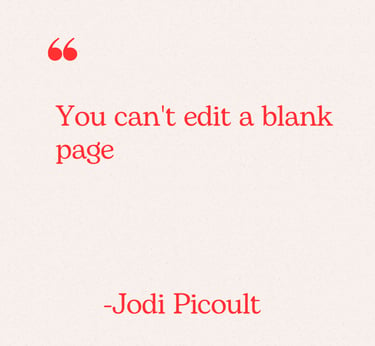From Idea To Page: My Go-To Writing Routine & Tools
My process writing my debut novel "The Infamous Story of Retro Brite"
Felícia Jones
8/4/20233 min read
Introduction
I recently released my debut novel, titled "The Infamous Story of Retro Brite." The experience was both challenging and rewarding, as this novel had been a passion project I worked on for a few years. During the pandemic, like many others, I came to realize the importance of pursuing hobbies and passions. However, I faced several challenges along the way, including not knowing where to start, experiencing writer's block, and struggling with motivation. Over time, I refined my process to overcome these obstacles and successfully complete my novel. If you're wondering how to start a novel, overcome writer's block, or stay motivated, here are the steps I took to finish my debut novel.
Getting Started
The idea for my novel originated many years ago, and while I can't recall the exact moment or circumstances, I distinctly remember discussing it with my brother. As soon as the idea popped into my head, I made it a point to jot it down on my phone or in a notebook. Capturing ideas promptly has always been my approach. Next, I focused on creating the characters by imagining their appearances and personalities. To keep the characters organized, I developed character sheets for each one. The character sheets included many details about the characters, such as their physical attributes like height or weight. They also included details such as their emotional wants, personality traits, and mannerisms. The subsequent step involved outlining the plot, initially starting with a rough outline consisting of only a few scenes. As I progressed, more characters emerged, and the plot gradually came together. I firmly believe that the key is to write without judgment, setting aside concerns about the quality of the work. Editing can always be done later.
Practical Tips
Keep notes on your phone or in a notebook
Create simple character sheets
Start with a loose outline instead of a detailed one
Overcoming Writer's Block
Writer's block is a common hurdle faced by many writers and artists, and it continues to be a challenge for me. I believe that writer's block often stems from perfectionism and a lack of confidence, which are issues I've discussed before. One method that has proven effective for me in combating writer's block is to step away from the project for a while. Whether it's for a few hours or a few days, I engage in activities I enjoy, such as exercising, watching TV, or simply relaxing. I also find journaling and free writing to be helpful, even if the writing is unrelated to my novel. These practices can help reinvigorate my creativity. Additionally, I've discovered that writing with pen and paper frees me from the distractions that come with using a laptop. Changing my routine and environment has also been beneficial in fostering creativity.
Practical Strategies to Overcome Writer’s Block
Timed writing sprints (10–20 minutes)
Talking out loud through a scene
Go on vacation
Watch a new movie or TV series
Go for a walk
Finding Motivation
During the pandemic, while working as an essential worker, I often found myself lacking motivation to write after long and tiring days. Furthermore, I faced mental health challenges, particularly anxiety, which made it seem like completing my novel was an insurmountable task. My anxiety was telling me my book wouldn't be good enough and asking what was the point of writing it. It felt like I was overthinking and overcomplicating the process. To stay motivated, I began breaking down the project into smaller, more manageable goals once I had completed the outline. Some weeks, I focused on finishing a single scene or chapter. Establishing a writing schedule also played a significant role in keeping me motivated. While I didn't write every day, I found a schedule that worked for me. Additionally, the most impactful step I took was hiring a writing coach. Not only did this provide me with weekly deadlines to meet, but it also offered valuable encouragement and feedback. The coach's support and input motivated me to persevere and complete my project. I highly recommend seeking out a writing coach, joining a writing group, or sharing your work with friends. Sharing your work with others can help you remain accountable and track your progress.
Should You Hire a Writing Coach?
Pros – Boosts productivity, improves writing quality, provides accountability
Cons – Can be costly, poor personality match, unethical scams, loss of creative autonomy
When is it worth it? – When you are stuck, need motivation, or lack accountability
Alternatives – Peer writing group, local or online writing group, beta readers, group coaching
Lessons I Learned From Publishing My First Novel
Start before you feel ready.
If I had waited until I felt completely prepared, I would still be waiting. Progress began the moment I decided imperfect action was better than endless planning.
Progress beats perfection.
Some weeks I only finished a single scene. That small step mattered more than rewriting the same chapter ten times.
Starting Point Flexibility
There is no one-size-fits-all approach to writing a novel. However, I firmly believe that outlining and setting goals are crucial steps. Even more important, though, is sticking with these goals and finding the motivation to see the project through. Here is another post that delves into why outlining is important and explores different outlining methods. Are you currently writing a novel? If so, what stage are you in?


